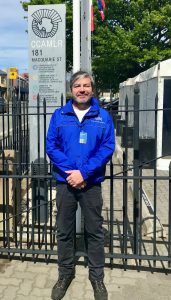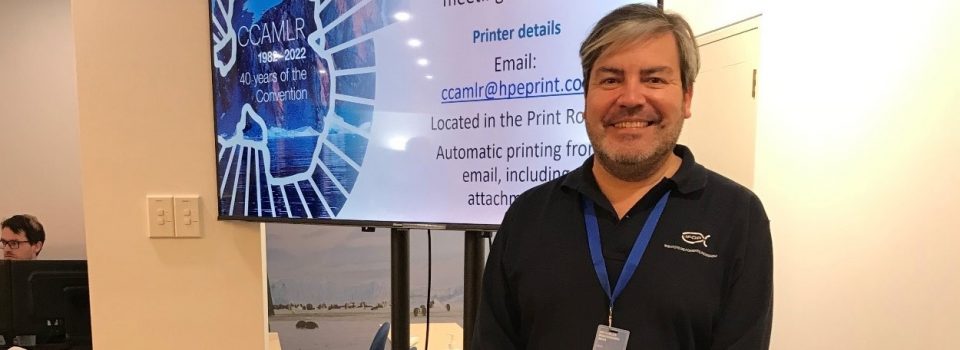Dr. Carlos Montenegro Silva from IFOP, participates in CCAMLR Scientific Committee 42nd meeting
November 2nd, 2023 Between October 16th and 20th, 2023, Dr. Carlos Montenegro Silva, IFOP Fisheries Research Division Head, participated as a member of the Chilean delegation in CCAMLR 42nd Scientific Committee meeting ( Antarctic Marine Living Resources Conservation Commission), which was held in Hobart, Australia.
Between October 16th and 20th, 2023, Dr. Carlos Montenegro Silva, IFOP Fisheries Research Division Head, participated as a member of the Chilean delegation in CCAMLR 42nd Scientific Committee meeting ( Antarctic Marine Living Resources Conservation Commission), which was held in Hobart, Australia.
The Antarctic Marine Living Resources Conservation Commission is an intergovernmental organization established by an international convention. The Commission, assisted by the Scientific Committee, is responsible for developing necessary measures for Southern Ocean surrounding Antarctica marine life’s the conservation.
Convention Negotiation was initiated by Consultative Parties Antarctic Treaty alarmed by scientific reports expressing concern that uncontrolled fishing for Antarctic species, especially krill, could cause irreversible damage to other species populations in the Antarctic marine ecosystem. After a series of diplomatic and scientific meetings, the Conservation of Antarctic Marine Living Resources Convention was established at a special meeting in Canberra, Australia, on May 20th, 1980 and signed by 17 countries, including Chile. Today the Commission has 27 member states and 10 acceding states to the treaty.
Currently, fisheries targeting toothfish also known as bacalao (Dissostichus eleginoides), Antarctic toothfish (Dissostichus mawsoni), icefish (Champsocephalus gunnari) and Antarctic krill are carried out in the Convention Area. (Euphausia superba). These fisheries management is carried out adopting a precautionary approach, and management objectives seek to find a balance between conservation and rational use of resources and preserving pre-existing ecological relationships.
CCAMLR Members national scientific programs research activities results were analyzed at the Scientific Committee 42nd meeting. In addition, it became aware of programs to collect the data necessary for Southern Ocean effective management, including elements such as fisheries monitoring, scientific observers on board fishing vessels, and ecosystem and marine waste monitoring programs.
Additionally, the Scientific Committee’s five working groups intersectional work was reported, which are:
Ecosystem Monitoring and Management Working Group (WG-EMM)
Fish Stock Assessment Working Group(WG-FSA)
Statistics, Assessments and Modeling Working Group (WG-SAM)
Fisheries-Related Incidental Mortality Working Group(WG-IMAF)
Acoustic Surveys and Analysis Methods Working Group(WG-ASAM)
